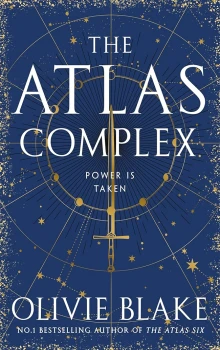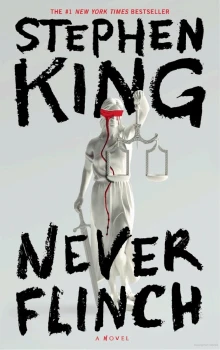10
They are somewhere in Virginia. Outside the windows of Ma’s rust-and-tan Toyota, foaming green pastures blur to deep golds in the late afternoon sun. At the edge of the fields is a mountain range that, according to the map at the last rest stop, is called the Blue Ridge.
“They have chicken coops in the front yard here,” says Bà ngoại. She’s clutching the handle above the window with both hands, a habit she picked up riding communal vans through rocky, unpaved roads in the Tiền Giang province of her youth. “An hour ago, the coops were on the side of the houses.” As usual, no one’s listening to her but Hai. His mother’s driving, her sister, Kim, in the passenger, and he’s in the back pressed to the door, Sony in the middle, their grandmother on the far side, and farther away still in her mind.
“I would free them if I lived here. Go out at night and cut the cages loose.” She chuckles to herself and turns to Hai, her eyes wet for no reason.
“What’s funny, Bà ngoại?” Sony says. “You have a joke inside you?”
She puts her arm around him and he scrunches from the touch. “Helicopters are funny,” she says. “This one is driven by my daughter.”
Sony wrenches himself free. “I’m gonna drive a helicopter one day in the army and take you around so you can see how they build chicken coops in Canada.”
Bà ngoại reaches into her pajama pockets, removes two Halls cough drops, unwraps them, and shoves one into Sony’s mouth. Then she looks over to Hai. “Open up.”
Hai opens his mouth and she chucks it in, hitting his bunny teeth. “Home run! Home run!” she shouts in English, slapping the roof and laughing.
“What are you saying back there?” Aunt Kim asks in Vietnamese. She’s eating pistachios and hurling the shells out the window.
“Would you stop littering?” Ma says.
“Oh, don’t be so stuck up.” Aunt Kim spits more shells out the window. “It’s not littering if it’s part of nature.”
They’re on their way to Florida, where Kim is going to scope out a nail salon to purchase. It’s a big deal cause it means Kim and Sony would leave the family behind—and Ma’s been nervous about it all week. As they were nearing Virginia, Sony had begged his mother to take the detour they’re now on.
“How far away are we anyway?” Ma asks. “It’s creepy around here.” They pass a makeshift junkyard filled with broken-down carnival rides.
Tied around Hai’s neck with a string is a GigaPet, a palm-sized device in which a pixelated “pet” can be fed and cared for until the battery dies, the rave of every preteen in 2001, which means he’s eleven and Sony is nine. Which means it’s August and the Twin Towers will stand for five more weeks in New York.
Aunt Kim unfolds a map and stares at it awhile. “I think twenty more minutes. Maybe less.” Kim faces Sony, points a finger at him. “This place better be worth it. It’s an hour out the way and your auntie is driving with a headache.”
Sony nods vigorously. “It’s very important, Mommy. I promise,” he says in English.
The cough drop makes Hai’s eyes water, and the gold hills start to smear as the car chugs down the one-lane road.
Soon the trailers and junkyards give way to a sleepy town laid up on a bank of hills overlooking horse farms and stretches of mown lawns big as municipal parks. Ma and Aunt Kim are trying to figure out the turns. The town center fills no more than a few blocks, which they circle, Aunt Kim scanning the house numbers. As they turn onto one of the streets, Sony shouts, “This is it! This is the street. Go to number eight, Auntie! Eight Washington Street.”
They park on a quaint little brick-lined street with polished black lampposts, a coffee shop, a wine store, and a consignment boutique with a chalk sign set out on the walk claiming it The cutest darn place for miles. A young couple in their twenties stop to take a selfie with a Polaroid under a hanging pot of foaming mums. Everything is clean. The sidewalks, impeccably white, sparkle as the late sun washes over them.
Bà ngoại gets out and stretches her arms. “What are we doing here, guys? Is this Florida yet?”
“We’re stopping here so Sony can learn something,” Aunt Kim says. “And it better be quick.”
“Is this a school?” Ma asks, frowning up at the high windows.
“You have to go in the back.” Sony darts down the gravel drive toward the rear of the house. He opens the wooden gate that leads to the backyard and waves them through. The family enters what looks like a small vegetable garden, the names of local produce markered on wooden stakes. There’s a shed where vines have overtaken the copper paint, the leaves motionless in the dead afternoon. Everything’s still and silent save for their steps on the gravel.
“They have mint!” Bà ngoại says, pinching off a few leaves and cupping her nose with them. “And look! Eggplants!”
“This is somebody’s house,” Aunt Kim says. “They’re gonna shoot us. I heard they can shoot you in some states without even asking.”
“Don’t be stupid. No one’s going to shoot anyone. Hey,” Ma calls to Sony, “hurry up and learn about these vegetables.” She searches her purse for some gum. “I’m starving.”
Just then the back door flings open and they all turn around. Sony is so excited he literally holds his head in his hands. A woman in a pantsuit with puffy blond hair appears. “Hello? Can I help y’all?” She scans their faces, blank as caught animals.
“Say something!” Ma hisses at Hai.
“Um, hello, ma’am,” he tries in English. “We, um…we want to learn about, uh…”
“Oh! Of course,” the woman chirps. “Don’t be shy. Come on in, we’re about to start in a bit.” She holds the door open with a wide, impenetrable smile, her dangling earrings glinting like needles as they file through with lowered heads.
The entry door opens into a basement lined with fieldstone walls, the air drastically cooler than the heat they’ve been trapped in all day. It smells of dampness and Lysol.
The blond woman leads them to a counter. “So, three adults and two kids, right? That’s thirty-two dollars.”
“How much is it?” Ma asks Hai, digging into her purse.
“Three and two,” Hai says in Vietnamese.
“Five dollars?”
“No, three and two. Here.” He grabs Ma’s purse, much to the clerk’s surprise, and hands the lady two twenties.
“It’s that much?” says Aunt Kim, glaring at Sony, who’s holding Bà ngoại’s hand and beaming.
“This place has ghosts,” Bà ngoại says, her eyes tracing the ceiling.
The lady gives them blue stickers to put on their shirts. Bà ngoại puts hers on her forehead and convinces Sony and Hai to do the same. “This will ward them off. They’ll think we’re shamans.”
The white lady then calls for someone named Carol, who immediately manifests from behind a curtained back room. A soft-spoken and cheery middle-aged woman with frameless glasses, close-cropped hair, and green cargo pants, Carol ushers them into a holding area where six other people, all adults, are lingering about.
Carol marches to the front of the room, clears her throat, and says, “Okay, folks. Welcome to the Stonewall Jackson Historical House and Museum! My name is Carol and I’ll be your docent today. Your presence and support are very important to the preservation of history and her artifacts. But first,” she gleefully holds up her index finger, “we’re going to show you a segment of our award-winning short film on the man—and the legend—himself.” She then twirls, in a full circle, and steps aside. A few seconds later the lights dim and a film plays on a TV mounted on the wall.
The film is about ten minutes long and talks mostly about this old man’s life, the narration marked by dates, not of his military accomplishments but of the regular things he did every day: the path he took each morning to get to the Virginia Military Institute, where he taught, the gardening books he enjoyed, quotes from his letters to former cadets, foods he liked to eat, how his first wife, Elinor, died during childbirth, the baby stillborn, and his early years spent teaching literacy to Black families in Lewis County, West Virginia. This last bit was mentioned three times. The film ends with a slow zoom-in of Jackson’s bronze statue at the University of Virginia, accompanied by sweeping violin music.
The lights come on and, with the images of Jackson’s grandfather-like benevolence fresh in their minds, Carol directs them across the hall into a kitchen, where various foods are spread over every available surface: hand pies, dinner rolls, loaves of golden bread, wedges of cheese, fruit and vegetables heaped into wicker baskets or laid out on cutting boards—all of it bountiful, perfect, and fake, each item molded from bright, scintillating plastic.
“What’s happening?” Bà ngoại asks in Vietnamese, loud enough for a few people to turn around. “They gonna cook for us?”
“This is a museum,” Sony whispers in English. “To learn about Stonewall Jackson.”
“Just be quiet, Ma,” Aunt Kim hisses. “If you’re hungry we’ll get chicken tenders after.” Aunt Kim grins at Carol, urging her to continue.
“Okay, so I’m gonna say right out the gate that the Jacksons did own slaves. But,” Carol notes, her smile more a grimace as she pushes up her glasses, “we call them servants here—since that was how they were referred to by the Jackson family.” She pauses and looks around the room. “We try to be contemporaneously accurate is all.” The other visitors, all white, nod. “Two of the servants had even asked for Jackson to buy them. Which was very common,” Carol emphasizes. “Jackson even allowed one of them, Albert, to work and give over his wages, thereby purchasing his own freedom in the end.”
A woman in the group touches her chest with admiration.
While Sony is rapt with attention, Hai is bored out of his mind and wants nothing more than to get to a Motel 6 down the road and watch WCW using the free cable they don’t have at home. He checks his GigaPet, but it’s sleeping and doesn’t want to play. “Useless,” he mumbles, shoving it in his pocket.
In Jackson’s study upstairs, Carol takes time explaining the types of furnishings used in the period: the oilcloth runner, the grass-weave mats rolled out for summertime, an original wall hanging, Jackson’s chairless desk—the professor had poor digestion, she explains, and preferred to prepare his lectures standing up. Now here’s the parlor where Jackson, against his austere Presbyterian beliefs, would be overcome and dance the polka to his wife’s piano solo after dinner. Here the parlor chair facing a wall where the professor would sit to meditate and memorize his lectures. There the rug where he’d roll around playing with the children of his guests, for he preferred their company over the stale adults.
In his bedroom, the group is shown the toilet where the general would relieve himself, a four-post bed, a chair draped with a blue uniform and cap, the kind Jackson wore as a professor at the military academy before joining the Confederacy. At the corner of the bed is a small woven basket. Carol reaches inside and passes around laminated photos of Jackson, most of them showing a clean-shaven man, his pale eyes creating the curious mix of a mournful yet piercingly determined gaze. “He was mostly clean-shaven,” Carol offers, nodding to Jackson’s original shaving table, its mirror now holding the faces of the visitors, who take turns filling the oval that once held his face.
“Any questions before we move on?” Carol asks.
Sony shoots up a hand in the back but she doesn’t see it. “Did he ever come back here after Second Bull Run?”
“You gotta speak up.” Hai yanks on Sony’s shirt. But Carol’s already in the next room.
“Could you imagine living here?” Ma says, examining a polished wood sideboard. “How much sweeping you’d have to do?”
“I’d live here if my husband was rich,” Aunt Kim says.
“And you can find a rich husband in Connecticut.” Ma shoots her a glare.
Just as Ma and Aunt Kim leave, Bà ngoại grabs Hai’s arm. “Hai, I need your help.”
“What is it, Grandma?” Sony asks in English.
“What’s he saying to me?” she asks Hai. “Never mind. I have to pee. Can you boys watch the door?”
“Okay, let me look for a bathroom,” Hai tells her in Vietnamese. Before he could take a step further, she grabs a lidded earthenware pot from a wall shelf, clearly an antique, and puts it on the floor.
“Bà ngoại!” Sony squeals as Bà ngoại squats over the pot, the sound of dribbling filling the room, and faces the boys, her eyes shut with relief.
Hai covers Sony’s mouth. As she finishes, a patter of footsteps approaches. “Hurry up.”
“Get me that towel!” Bà ngoại says.
Hai hands her an embroidered cloth hanging on a rocking chair. She cleans herself, tosses the rag in the pot, and closes the lid. She’s putting the pot back on the shelf when Carol circles back. “Okay, folks, so we’re gonna come right through here back to the foyer—oh, oh dear! Here, let me get that, hun.” She rushes to Bà ngoại as Sony and Hai back up against a wall. Carol takes the pot and helps her hoist it on the top shelf with a grunt. “Woo—heavy. They don’t make ’em like they used to.” She pats the pot on the shelf. “Now. Please don’t touch the objects. They’re originals. I know, I get it, it’s tempting. History is fun.” She turns to the boys. “Isn’t it, guys?”
Sony and Hai both nod. Bà ngoại shrugs and gives them a wink.
After a brief stint in the dining room, where a table is set for an elaborate dinner, the tour draws to a close. There, on a side table beside yet another bowl of fake fruit, lies Jackson’s leather-bound family Bible, the girth and size of a chopping block. “It was in here that he would pray each morning. And sometimes,” Carol adds with a smile, “he’d even lock out his wife if she was late to prayer.”
The tour ends here—on faith. Faith and nourishment, like how it began.
A minute later they’re ejected into the gift shop, a tiny room renovated from some kind of ominous basement cellar. Among racks of both Union and Confederate military caps, you can also buy a pack of playing cards printed with every state flag in the Confederacy. There’s also a slim graphic novel of Confederate leaders marketed to children seven and up. On one shelf, flanked on each side by illustrated biographies of Jackson and Robert E. Lee, are copies of Dr. Seuss’s Green Eggs and Ham. Above that, a vibrant array of garden seed packets for cucumbers and pink asters. Aunt Kim bought a tin of Altoids mints by the register.
The door opens and they spill into the bright garden, the humid air filled with sweetgrass, dried hay, and cow manure from nearby farms.
A digital thermometer above the post office reads ninety-five degrees. The Virginian sun shimmers in Aunt Kim’s auburn-dyed hair, now black at the roots at summer’s end. “Did you boys learn a lot? Tell me, why was that man so important anyway? Or was it just cause he had a big house?” She turns to Ma. “Don’t you hate it when they’re famous just because they own something big?”
“He was a military genius,” Sony chirps, “just like my dad.”
“Your father’s a bum,” Aunt Kim snaps. “He doesn’t even eat Vietnamese food anymore, you know that?”
“Looks like all that white man did was stand around and pose for photos,” Ma says, opening the car door. “If I was famous for standing around with one hand on my hip, I’d never let anyone in my house—even after I’m dead.”
From across the street, a pair of female cadets, their white uniforms bathed red in the shoulder-high sun, brush by, their heads nearly touching as they laugh at a tattoo on one of their arms.
Half hour later, the family’s sitting on a curb in the McDonald’s parking lot eating chicken nuggets.
“Happy birthday, boy!” Bà ngoại says, and dunks her nugget into Sony’s BBQ sauce.
“Stop, Bà ngoại, no!” he giggles, turning away from her as she pulls him close. Ma and Aunt Kim are next to them, chatting between bites of Filet-O-Fish sandwiches about the nail salon in Florida, what it would cost, what it would mean to be so far apart from each other, long silences widening between their voices.
Hai stares across the vast highway, the cars blaring past on their way to September, to school and work, and leans into Sony, their shoulders imperceptibly touching.
“I’m glad we’re out of that place,” Bà ngoại says to Hai. “It was full of demons.” She peels the blue sticker off her forehead and flings it into the breeze. Hai and Sony do the same as Sony smiles, a spot of BBQ sauce on his chin.
That’s when Hai woke and saw Sony’s face, stone-blue with sleep and moonlight, his steady breaths mixed with Grazina snoring nearby on the couch. It was Thanksgiving Day in East Gladness and Bà ngoại was long gone, along with that summer day so many years ago. But Hai whispered it anyway: “Happy birthday, Sony.”





